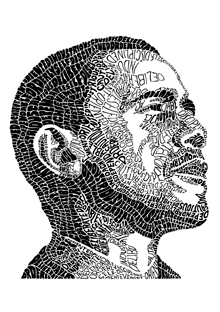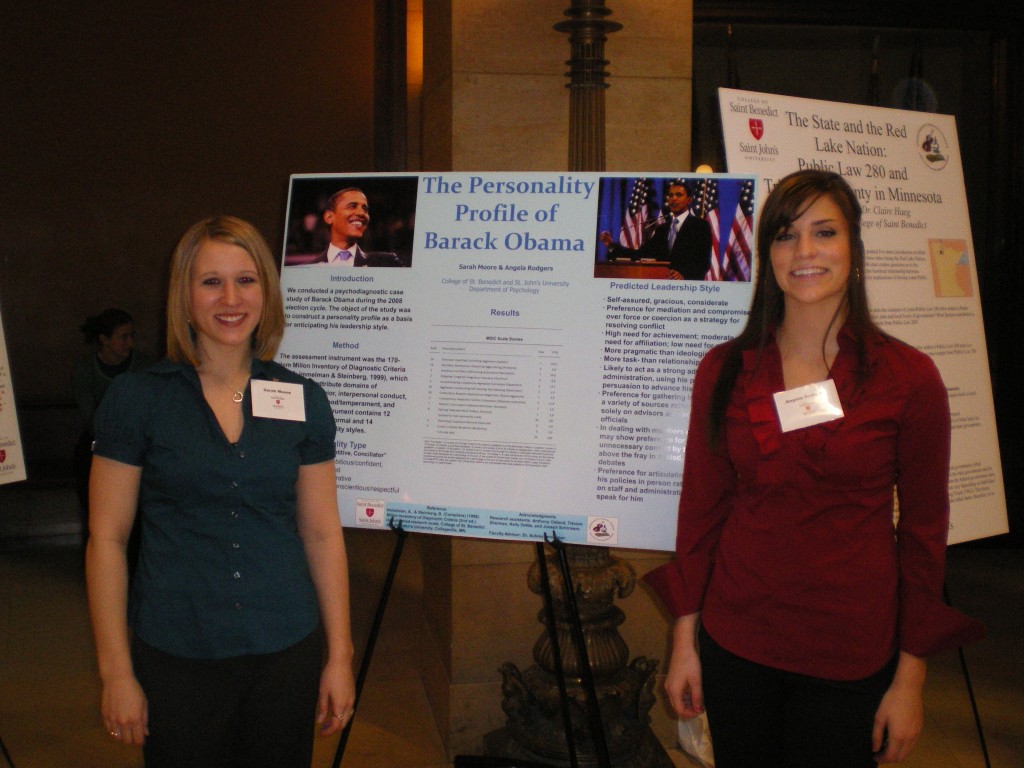Obama’s Decision-Making Style
Obama’s Decision-Making Style
November 25, 2009

President Barack Obama meets with members of his administration in the Situation Room. (Photo credit: Pete Souza / The White House via Associated Press)
In His Slow Decision-Making, Obama Goes with Head, Not Gut (Joel Achenbach, Washington Post, Nov. 25, 2009) — Excerpts: President George W. Bush once boasted, “I’m not a textbook player, I’m a gut player.” The new tenant of the Oval Office takes a strikingly different approach. President Obama is almost defiantly deliberative, methodical and measured, even when critics accuse him of dithering. When describing his executive style, he goes into Spock mode, saying, “You’ve got to make decisions based on information and not emotions.” … Full story
TOPICAL REPORTS ON THIS SITE
Barack Obama’s Presidential Leadership Style

Click on image for larger display
A psychological profile of U.S. President Barack Obama, developed at the Unit for the Study of Personality in Politics during Obama’s 2008 and 2012 presidential campaigns, reveals that the president is a highly confident, moderately accommodating and deliberative, somewhat reserved personality type best described as a confident conciliator. Obama’s personality profile provides a stable framework for anticipating his likely leadership style as president.
A Key to Success for Obama?

Excerpts from Oprah Magazine
Aubrey Immelman, PhD, associate professor of psychology at the College of Saint Benedict/Saint John’s University in Minnesota, says the variable that most distinguishes Obama from the two previous presidents is conscientiousness – one of the “big five” personality factors in standard psychology (everyone has all five, in differing degrees; the others are openness to experience, extroversion, agreeableness, and neuroticism).
People who score high on the conscientiousness scale (as determined by several personality inventories) are dependable, orderly, self-disciplined, achievement oriented, cautious, industrious, and deliberate – the type who could, say, run a masterfully efficient political campaign, exercise daily, even while on the road, and make methodical decisions. (Those who score low tend to be careless, irresponsible, disorganized, and unreliable.) … Full report
Barack Obama’s Leadership Style

Sarah Moore and Angela Rodgers present their research on “The Personality Profile of President Barack Obama: Leadership Implications” in the State Capitol rotunda, St. Paul, Minn., Feb. 19, 2009. The research, conducted at the Unit for the Study of Personality in Politics, was directed by Aubrey Immelman, Ph.D.
Summary of results:
The profile reveals that Barack Obama is ambitious and confident; modestly dominant and self-asserting; accommodating, cooperative, and agreeable; somewhat outgoing and congenial; and relatively conscientious. The combination of ambitious and accommodating patterns in Obama’s profile suggests a “confident conciliator” personality composite.
Leaders with this personality prototype, though self-assured and ambitious, are characteristically gracious, considerate, and benevolent. They are energetic, charming, and agreeable, with a special talent for settling differences and a preference for mediation and compromise over force or coercion as a strategy for resolving conflict. They are driven primarily by a need for achievement, but also have substantial affiliation needs and a modest need for power.
The study offers an empirically based framework for anticipating Obama’s performance as chief executive. The following general predictions regarding Obama’s likely leadership style can be inferred from his personality profile:
- Ambitious, self-assured, gracious, considerate
- Preference for mediation and compromise over force or coercion as a strategy for resolving conflict
- High need for achievement; moderate need for affiliation; low need for power
- More pragmatic than ideological
- More task- than relationship oriented
- Likely to act as a strong advocate in his administration, using his powers of persuasion to advance his policy vision
- Preference for gathering information from a variety of sources rather than relying solely on advisors and administration officials
- In dealing with members of Congress, may show preference for avoiding unnecessary conflict by trying to remain above the fray in heated, highly divisive debates
- Preference for articulating and defending his policies in person rather than relying on staff and administration officials to speak for him
Barack Obama: A Question of Toughness (Nov. 2, 2008)
Photo credit: Pablo Martinez Monsivais / AP
Sen. Barack Obama: Is He Tough Enough?
By Aubrey Immelman
St. Cloud Times
November 1, 2008
Among the many leaders I have studied — presidential candidates as well as foreign adversaries as a consultant to the U.S. military — Barack Obama is something of a rarity. … Read more
UPDATES
Obama to Speak on Afghanistan Policy (Associated Press, Nov. 25, 2009) — WASHINGTON — President Barack Obama will announce his plan to bolster the war in Afghanistan in a speech Tuesday night from the U.S. Military Academy at West Point, his spokesman said, a surge that military officials say could top 30,000 troops. The president promised this week to “finish the job” begun eight years ago, and press secretary Robert Gibbs said Wednesday the announcement would include an exit strategy. But the surge in troops would be Obama’s second since taking office, and liberal Democrats already are lining up against it, in part because of the also-surging cost – up to $75 billion a year. … Full report










Follow Aubrey Immelman